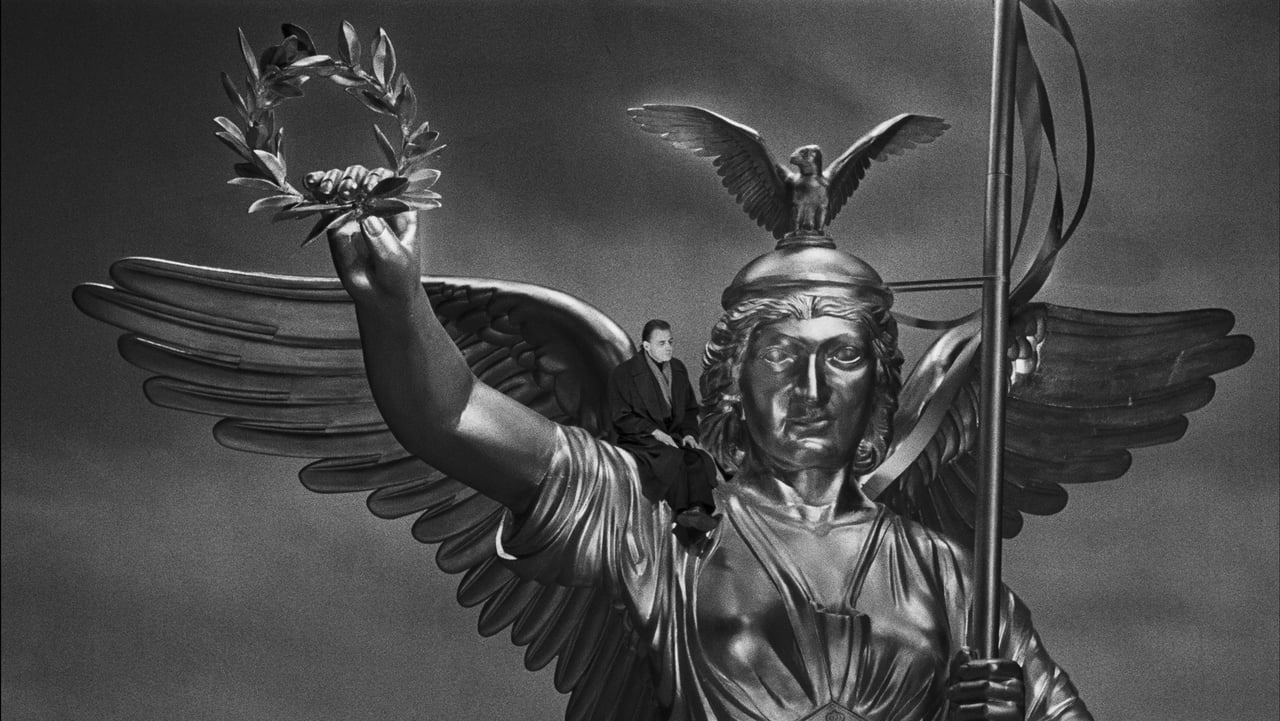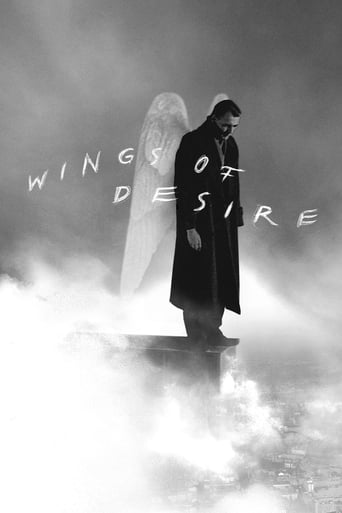



Absolutely Fantastic
Instead, you get a movie that's enjoyable enough, but leaves you feeling like it could have been much, much more.
View MoreThe plot isn't so bad, but the pace of storytelling is too slow which makes people bored. Certain moments are so obvious and unnecessary for the main plot. I would've fast-forwarded those moments if it was an online streaming. The ending looks like implying a sequel, not sure if this movie will get one
View MoreThere are moments that feel comical, some horrific, and some downright inspiring but the tonal shifts hardly matter as the end results come to a film that's perfect for this time.
View MoreThere's something truly beautiful about this. I'll not pretend to understand all of it, but I don't think you need to. There's so much to feel and consider and I think it is a film that will stay with many long after they have seen it.The whole thing looks gorgeous, and at times it almost feels like a documentary as shots of Berlin are interspersed with long almost rambling dialogue (some of which I feel I may need to go back to)! The crux of the film for me was a celebration of human life. How things feel, how things smell, how things taste and of course love.Something I will likely be watching again.
View MoreAn angel tires of overseeing human activity and wishes to become human when he falls in love with a mortal.This film will be notable to Americans for two things. First, that it is the original (and better) version of the wildly successful Nicolas Cage film "City of Angels". And second, that it features Peter Falk as himself, musing over his hats, drawings and other mundane things. Why Falk was chosen is unclear, but he fits in perfectly.But more importantly, this film is beautifully shot, a work of art, and it goes above and beyond whether the narrative is interesting (it is) or if the actors are good (they are). Just a great film and a fine introduction to Wim Wenders if someone needed one.
View MoreIn West Berlin, Damiel (Bruno Ganz) and Cassiel (Otto Sander) are angels who wonder the world observing and providing comfort. Damiel wants to be more human. He starts to fall for trapeze artist Marion (Solveig Dommartin) at a rundown circus. There is also the elderly Homer who recalls the Berlin of old. Another is Peter Falk who is shooting a film taking place in the Nazi past but he's also hiding a secret from his own past.The best way to describe this is a German meditation. It's digging into the Nazi past in an artistic way. I personally don't see anything compelling about that. It is so slow and Damiel is so passive. It infuriated me more than appealed to me. Of course, everybody in the world loves it but all the inner monologues and the unemotional acting bored me.
View MoreThis is the project great makers undertake without exception from Welles to Iwai; if those things which you can't touch with the hand can be felt to exist, yearning, memory, thought, if right now you can recall an image, it means this space extends around us and is a part of us, so how can this be surrounded with the camera, acknowledged beneath the story and allowed to float as life?It's a great joy to have this, Wenders repeatedly tried. He knows Buddhism, how narratives of the mind obscure a true perception, how dust settles on mirrors. He may or not know that both Buddhists and contemporaneous Greeks early on identified liberating wisdom as the right use of appearances, the link is Alexander's travel to India. And he must know that since the Greeks divinity in the West, apprehension of god, has been implicitly woven with the mind that attempts to transcend itself.So Wenders here is at his most ambitious about this, liberation in life, about death and (literal) god we can only have imaginations anyway. One of these imaginations is used here, the notion of angels in the heavens, but this is only the tool though for floating observation of life unhindered by story, to swim into narratives of mind, then see if we can push beyond and transcend.So an angelic eye swoops down into murky life, the place is Berlin as it contemplates wounds and walls. What do we see there?Our eye floats from one life to the next, one person to another, on one level the film offers a contemporary tapestry of German anxieties. On another the device lets us see more clearly into the nature of these anxieties - as we approach characters we're flooded by that extended self lost in thought, nothing but disappointment, vexation, desire. Parents fret about their son's loud music in the next room, a young acrobat worries that her circus dream may have amounted to nothing.Internal narration. This is typical Wenders, that side of him that keeps me at bay - Chris Marker in Sans Soleil playfully unfolds ribbons of remembrance, Tarkovsky rich clouds of appearance as they calmly empty out, Wenders can be as evocative as both but chooses to plod in rumination. The monologues grate as in previous films, they're too long. But he also reaches out for more.The higher ('angelic') view that brushes with earthly despair but flies off again finds no purpose or solace and only cyclical suffering - what the Buddhists call samsara. All considered, Wenders offers a powerful rendition of mind. Mind as the view that fleets from one thought, one story, to the next. Suffering as rumination and as inability to escape narration.Good, so far. Wenders being German can only feel the burden of history pressing on him, silly zeit and sein. But then finally we have the return to things as one of the angels decides to enter time and mortality. So how does Wenders enter this shift?If we could somehow only know this ethereal life of pure spirit in eternal peace that we've always yearned for, a disembodied mind that hovers above things without ever getting tangled up with them (all our notions of an afterlife converge on this), what would we think? Touch would be a profound mystery, having a body that feels wind or heat. I can't stress enough the importance of limits, it's what energizes life, that I don't know all, that I can be surprised and curious, that I can travel from here to there and discover, that it's all in flux and changing, it's why this whole circus matters.So I can see him stressing all the important realizations. Touch, being free to tangle with things and love. Spontaneous appreciation.I find myself rooting for this German as he shucks off the worry about meaning to be able to find it in the tremendous richness of things as they come to be and vanish again, what Herzog for thirty years had to travel to the most absurd corners to witness and pilgrimage, wash logic with doing. What Tarkovsky meditated inwards in memory, Marker in bemused preoccupation with revolution (never attached like Godard), cats and Tokyo.But Wenders meets his own limits once more. Whereas all these guys could transcend, Wenders only limps. A bit of wandering but without real wonder. In place of any of the small possible encounters he could create around Berlin, he gives us a Nick Cave concert again - style. The camera tracks forth and back in a crowd - style. The two lovers finally find each other - but swap monologues again of stale profundity.More dust. Now the Buddhist achievement of The Passenger becomes apparent.
View More